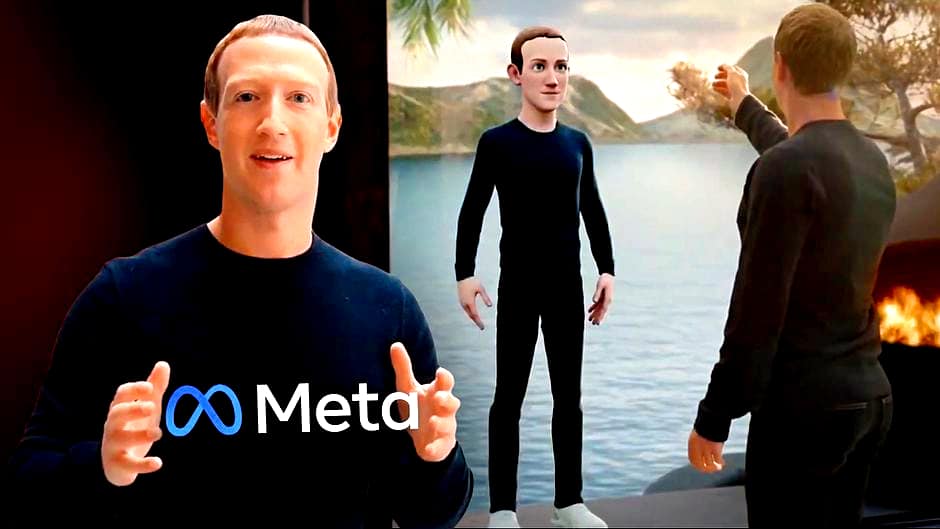It’s set to become a parallel universe that could be a new form of the internet. Metaverse is the great new hope for the world’s biggest tech companies.
It’s a real race to create the new form of the internet. The so-called metaverse is the overriding notion of an augmented reality that connects the real and digital worlds. Technology giants like Meta (formerly Facebook), Google and Microsoft are in on the billion-dollar business – and much of the gaming industry, such as Fortnite developer Epic Games.
The metaverse is supposed to represent a kind of digital universe that is increasingly connected to real life. Such parallel universes are still in progress, individual test versions and programmes already exist. But it is not yet a finished world in the true sense of the word. In contrast to conventional internet use, which takes place by looking at the screen in 2D, a metaverse platform is supposed to be a 3D variant of the internet with its own ecosystem. This starts with each person creating a realistic avatar that roams the Metaverse as a virtual image.
New market through virtual universe

The gaming industry is particularly interested in the metaverse plans because games can be realised in this universe in the best possible way. So it is hardly surprising that with all the billion-dollar plans Facebook has renamed itself Meta. But the competition with Microsoft is also ahead of the game. The software giant Epic Games, which in any case has the advanced as well as flexibly applicable Unreal Engine, already raised a billion US dollars for its own project almost a year ago, with the support of PlayStation developer Sony, among others.
“It’s not just a game with friends anymore. You can be in the game with them,” Microsoft’s Metaverse announcement reads. The new gaming possibilities are said to be possible with the donning of special headsets or glasses. Metaverse is also to become a virtual alternative of one’s own life, in which people have their own home and can talk and gesticulate with their friends virtually in the same room.
It is not only the already familiar virtual reality glasses that are to play a role, as has already become known in recent years via PlayStation VR or especially with the Oculus technology. Above all, augmented reality (AR) ensures a lively market, creating a dynamic connection between actual life and the metaverse. Economy is also ultimately the driving force behind all the billion-dollar companies to tap into this new market.
With these digital opportunities, new virtual valuables are also coming into play, as has been seen for months through Non-Fungible Tokens (NFTs). From this perspective, people can present and better visualise their virtual items in a virtual space. Furthermore, virtual properties, houses, fashion items or even tickets for concerts can be purchased. There seems to be no limit to the flexibility.
video conferencing, work colleagues are in the same room, can exchange documents, view graphics together and perceive facial expressions and gestures. The currently frequently practised home office would thus be visually transformed.
Holograms instead of screens
Any medium that can be shown digitally should be compatible with the Metaverse. According to Meta founder Mark Zuckerberg, this includes all photos, videos, artwork, music, films, books and games. “Many things that are physical today like screens will become holograms in the future,” Zuckerberg said. “You don’t need a TV. All you need is a one-dollar hologram of a high school kid from the other side of the world.” For example, virtual graffiti with a marker can also be placed in the real world and viewed as a hologram.
The first version of a virtual living room from Meta is “Horizon Home“. However, this own world is only a small part of “Horizon World”, which is currently still far away from the actual future plans. With it, everyone should be able to create their own world and share it with others.
The plans are similar for the competition, which continues to work at full speed towards its own Metaverse. Microsoft announced on Tuesday with its acquisition of Activision Blizzard that gaming in particular will play a “key role in the development of Metaverse platforms.” Between all the global players, the fastest to create a working Metaverse will have a huge competitive advantage. But there is no end in sight to this competition.


